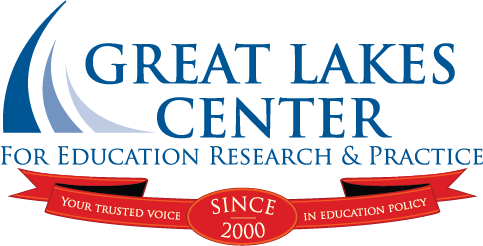
Think Twice Weekly Report
NOVEMBER 18, 2023 - DECEMBER 1, 2023
The Think Twice Weekly Report compiles public education-related policy reports, research and articles of interest to policymakers, educators and stakeholders. This list is not exhaustive but is meant to highlight recent reports that may be used to support or undermine the work of our subscribers in supporting public schools. We encourage you to take a moment to scan these reports and determine if they may be used by policy makers to assist or erode your mission.
 Policy Reports
Policy Reports
Community Schools
Source: The Brindgespan Group and National 4-H Council
Date: August 2023
Four Mindsets for Funding Economic Mobility in the Black Rural South
This report offers insights about the the power of community schools in the Deep South as a long-term strategy for economic development. Featuring perspectives from funders, researchers, and nonprofit leaders, the report also explores what philanthropy can accomplish in the region if it acts.
Class Size / School Finance and Funding
Source: Urban Institute
Date: 11/30/2023
How Will Implementing Class Size Caps in New York City Affect Funding Equity?
New York State passed a law in 2022 requiring schools in New York City (NYC) to reduce classes to 20 students in grades K–3, 23 students in grades 4–8, and 25 students in grades 9–12 by the 2027–28 school year. This new policy will require as much as $1.9 billion per year to hire additional teachers, but how this potentially inequitable policy plays out in practice will depend on how it is implemented, especially how it is funded.
We draw on data from the 2022–23 school year to estimate the teacher salary and benefit costs of implementing the law in grades K–5.
School Choice / School Finance and Funding
Source: EdChoice
Date: 11/27/2023
How States Protect Funding for K-12 Public Schools
In a new report package How States Protect Funding for K-12 Public Schools, EdChoice Director of Fiscal Research & Education Center Martin Lueken, along with EdChoice fellow and associate professor at the University of Missouri, St. Louis, James Shuls, explore state-by-state funding protections for public schools and their benefits and drawbacks.
This research provides education reform stakeholders with valuable perspectives on how expanding choice polices interact with funding protections such as declining enrollment and funding guarantees, also known as hold harmless provisions, within their states.
School Choice
Source: CRPE
Date: 11/27/2023
Teaching, reinvented: How unconventional educator roles pave the way for a more fulfilling and sustainable profession
As school systems struggle to recover from years of disruption, new programs, policies, and nontraditional organizations that support innovation in the teaching role will need to grow to support all students' learning. But what is it like to teach in new ways? What are the advantages and drawbacks? What brought educators to these unconventional roles and what might help them stay? This report addresses these questions through interviews with teachers who are serving in unconventional roles.
 Reports Reviewed
Reports Reviewed
GLC seeks to ensure that policy briefs impacting education reform are based on sound, credible academic research. Below are reviews conducted with GLC support.
Review of Small Class Sizes for Improving Student Achievement in Primary and Secondary Schools: A Systematic Review
Source: Campbell Collaboration
Reviewed by: Clive Belfield, Queens College, City University of New York
A 2018 report from Campbell Collaboration, analyzing research literature estimating the impact of class size reduction on reading and math achievement, has recently been gaining renewed attention, thanks in part to a Washington Post piece by Michael Bloomberg.
But the body of evidence the report uses is far too limited for the report to be of use to policymakers. So concludes Clive Belfield of Queens College, City University of New York, in his review of Small Class Sizes for Improving Student Achievement in Primary and Secondary Schools: A Systematic Review.
 What We're Reading
What We're Reading
Research and articles that we want to highlight for subscribers as potential resources:
Portland Association of Teachers Reach Tentative Agreement
By: Portland Association of Teachers
Rather than posting a news article, we are providing a link to the tentative agreement posted by the Portland Association of Teachers. Please scroll to the bottom of the page for specifics. The tentative agreement includes a 13.8% cumulative cost-of-living salary increase for all educators.
GOP states are embracing vouchers. Wealthy parents are benefitting.
By: Andrew Atterbury, Politico
When school choice programs began decades ago, they were primarily meant to assist low-income families seen to be trapped in failing local public schools and students with disabilities. But the new vouchers in many cases lift - or even eliminate - household income caps, giving wealthier families state cash to send their kids to private schools.
How School Voucher Programs Hurt Students
By: Joshua Cowen, Time
Do school vouchers actually work? We need to focus on what research shows, and what that means for kids moving forward.
Column: How Mississippi gamed its national reading test scores to produce 'miracle' gains
By: Michael Hiltzik, Los Angelos Times
Bob Somerby and Kevin Drum have deconstructed the statistics. Their conclusion is that Mississippi's program isn't nearly as successful as its fans assert and may not have produced any improvement at all in fourth-grade reading scores. The apparent gains may be a statistical illusion.
Mental Health Challenges of Young Adults Illuminated in New Report
By: Harvard Graduate School of Education
Making Caring Common identifies several drivers of young adults' emotional challenges, including a lack of meaning and purpose
